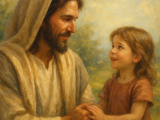Observing the Sabbath in the Hebrew Roots Tradition: A Celebration of Bread and Wine


Introduction:
In the Hebrew Roots movement, observing the Sabbath is a profound way to connect with the traditions of our faith and honor Yehovah’s commandments. This guide focuses on the rituals of blessing the bread and wine, central to the Sabbath celebration, using Yehovah’s name.
The Significance of Sabbath:
Observing the Sabbath from Friday sundown to Saturday sundown is a practice rooted in the Biblical creation story. It’s a day set aside for rest, worship, and reflection, acknowledging Yehovah as the creator and sustainer.
Preparation for the Sabbath:
Preparing your home and heart for the Sabbath is key. This includes completing all work before sundown on Friday, setting a peaceful environment, and preparing for the Sabbath meal.
Lighting of Candles:
The lighting of candles marks the beginning of the Sabbath. This act is a physical representation of bringing light and peace into your home. A prayer acknowledging Yehovah as the source of light and peace can be recited.
Blessing Over the Bread (Challah):
The blessing over the bread is a significant ritual in the Sabbath meal. Before breaking the bread, you can say:
Baruch ata Yehovah, Eloheinu Melech ha’olam, ha’motzi lechem min ha’aretz.
(Blessed are You, Yehovah our God, King of the universe, who brings forth bread from the earth.)
Reflect on this blessing as an acknowledgment of Yehovah’s provision and Yeshua as the Bread of Life.
Blessing Over the Wine:
The Kiddush, a blessing over the wine, is another central part of the Sabbath. Holding the cup of wine, say:
Baruch ata Yehovah, Eloheinu Melech ha’olam, borei p’ri hagafen.
(Blessed are You, Yehovah our God, King of the universe, who creates the fruit of the vine.)
This blessing is a reminder of the covenant and Yeshua’s sacrifice, symbolized by the wine.
Sabbath Meals and Fellowship:
Sharing these blessed meals is a time for fellowship and joy. It’s an opportunity to gather with loved ones, share insights from scripture, and discuss the teachings of Yeshua.
Study and Worship:
Dedicating time to study the Torah and the New Testament is crucial. Focus on understanding how the Hebrew scriptures and the teachings of Yeshua intertwine.
Rest and Reflection:
Embrace the day for both physical rest and spiritual reflection. It’s a time to step back from everyday concerns and focus on your relationship with Yehovah.
Concluding the Sabbath:
As the Sabbath ends at sundown on Saturday, a prayer or short ritual can be performed, expressing gratitude for the rest and spiritual nourishment provided by Yehovah.
Conclusion:
Observing the Sabbath with the blessings of the bread and wine is a powerful way to connect with Yehovah and honor the traditions of our faith. It’s a time to remember His provisions, reflect on His teachings, and rest in His presence.
This guide is adaptable to your particular practices within the Hebrew Roots movement, providing a framework to observe the Sabbath with a focus on the traditional blessings over the bread and wine.










